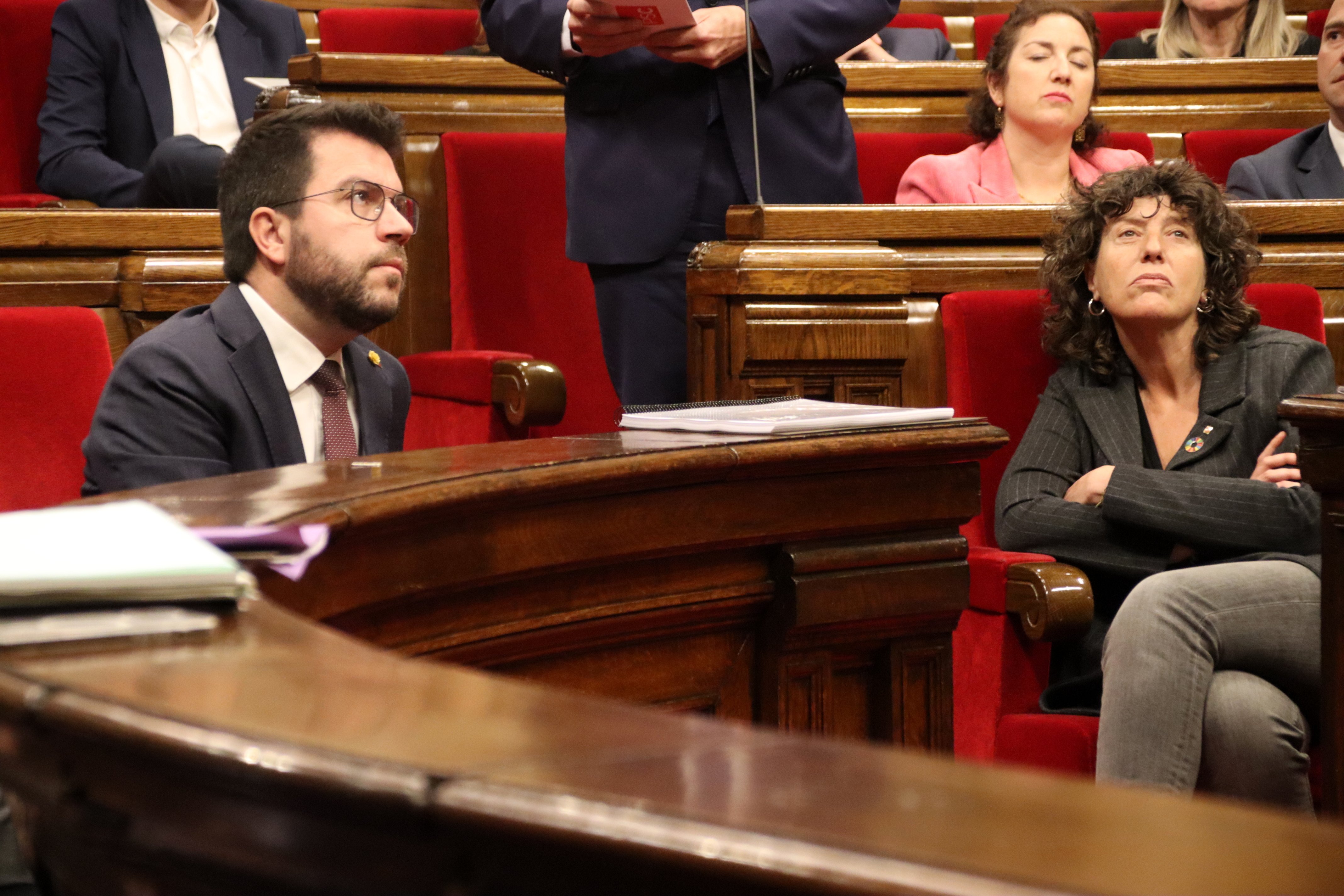On Wednesday, a wake-up call on Catalonia's drought; and this Thursday, moves for more urgent treatment of the issue. That has been the story of the last two days in the Parliament of Catalonia, as MPs first almost failed to even pass the Catalan government's decree on the territory's serious drought emergency - it got through in extremis only with only the support of the 33 seats of the governing Republican Left (ERC) and one non-affiliated deputy, along with a mass of abstentions. Then, this Thursday morning they debated the subsequent motion from Junts (Together for Catalonia) to question the government about the drought, urge the executive to adopt measures "immediately" such as an increase in water desalination, push for a new decree containing extraordinary and urgent measures to deal with this situation, modifying the one they have just passed - which will be addressed at the Catalonia water summit to be held on Friday week, 31st March - and the acceleration of the drive towards regenerated water. The motion has, on most of its points, the support of the Socialists (PSC), ERC, Junts, En Comú Podem (Commons), Ciudadanos (Cs) and the People's Party (PP). Vox and the Popular Unity Candidacy (CUP) abstained on the point of promoting a new decree.
The Junts MP who moved the motion, Joaquim Calatayud, underlined the importance of the fact that these drought episodes will be "increasingly frequent" and thus urged "not to draft a new decree in which there will be winners and losers". Among the measures contained in the motion, a proposal to call for tenders for the expansion of the Tordera desalination plant and faster progress in the project design for a new desalination plant in Cubelles. At the same time, an amendment negotiated with the PSC urged an improvement in the Ter drinking water treatment plant in Cardedeu or the remodeling of filters and improvement to the treatment quality of the Llobregat plant, execution of investments in the Ter-Llobregat Water Supply Agency and also, an accelerated commitment to the use of regenerated water, activating tertiary facilities that are already built, in order to triple the total volume of regenerated water to 100 cubic hectometres per year.
Criticism of delays in acting
The PSC deputy, Joaquim Paladella, warned that "the natural water cycle is no longer sufficient, and it is necessary to contribute more water resources into the system". "The motion called for urgency in the execution of investments that in reality should have been executed yesterday" claimed Paladella, adding that, "in the best case, we will have to hurry because the work hasn't been done till now." Junts MPs also accepted amendments from the PSC to improve the ability to take advantage of water from the metropolitan part of the Besòs river as well as to demand the application, if necessary, of economic compensation to sectors affected by the drought.
From ERC, deputy Anna Torrentà defended that the different points of the motion are already "goals of the government and included in the budget", but she also criticized Junts because she considers that the new motion is being promoted with an "electoralist view". "We celebrate the push due to the upcoming water summit, but we can't understand that some parties want to condition that summit from the start, this is not co-responsibility", she indicated. Junts accepted three amendments from ERC, which in fact include the promotion and approval "as soon as possible" of a decree of extraordinary and urgent measures to deal with the drought situation that will modify the current one: "It must have majority consensus and the contributions of the parliamentary parties and the main entities involved and affected [...] in order to reach a decree with a broad political and social consensus and which can be validated in the planned plenary session of the Parliament for April 18th, 19th and 20th".
Another of the points agreed with ERC was that of encouraging and providing technical support to administrations acting in water sanitation that are drawing up Master Plans for Regenerated Water in order to quantify the needs of regenerated water, and "guarantee and secure financing" for local bodies with the aim of investing in improved performance for water supply networks in poor condition.
For its part, the CUP stressed that "haste makes waste", that such major decisions must be well-thought through, rather than, perhaps, a response to a wake-up call. Dani Cornellà, CUP deputy, demanded a "water committee". In the case of the Commons, Lucas Ferro indicated that they "share" the main points of the motion, but he believed that it had become "outdated" by what happened in Wednesday's plenary session. Despite everything, the Commons consider that "desalination plants are not the magic solution to the lack of water in the country" but, rather, stated that such plants "could serve to complement a strategy of regeneration and reuse".
Catalan water summit, on March 31st
In the last turn to speak, Joaquim Calatayud was confident that the Water Summit, called by the Catalan government for March 31st, "will mark a turning point". This meeting, called by Pere Aragonès with invitations for all political, social and business agents to contribute was aimed, as the Catalan president said earlier this month, at "receiving input" and "helping raise awareness" among people, companies and public administrations because the situiation is "very difficult". "The more consensus there is in the face of this challenge, the more defense we will have for the future,” said Aragonès.

